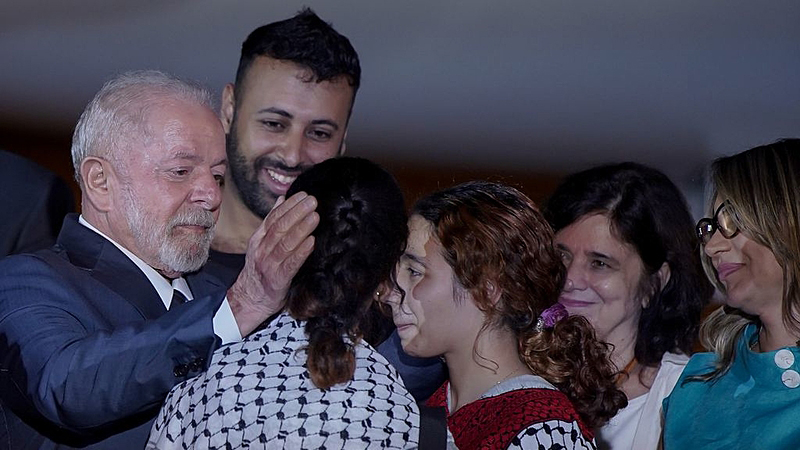The Brazilians who endured five weeks of Israeli attacks in the Gaza Strip have finally returned home. They landed in Brasilia on Monday night at 11:24pm, on a Brazilian Air Force plane, and were welcomed by President Luiz Inácio Lula da Silva. There were 32 passengers, 17 of whom were children, nine women and six men. Of these, 22 have Brazilian nationality and 10 are close relatives.
As the plane flew towards Brazil, Lula made an emphatic speech about the way the Palestinians are being treated. He said that Israel is “killing innocent people without any criteria.”
Since the first foreigners and people with dual nationality began leaving Gaza via the border with Egypt on November 1, this group has had to wait 12 days before feeling the relief of being able to leave the war zone, which has been relentlessly bombed and invaded by Israel. When a list of their names finally came out, they still had to wait two days before setting foot on Egyptian soil, because the border had been closed on Friday. On Sunday, they finally crossed it.
Another 4,000 citizens were allowed to leave before them, the vast majority of them Americans, in a process that caused unease and suspicion about the criteria used by the local authorities (Israeli and Egyptian) in choosing the names allowed to leave the conflict region.
The 32 Brazilians and their companions will be able to stay in the federal capital for two days, in a Brazilian Air Force (FAB) structure, and then go to meet their families. Those who don’t have relatives in Brazil, who make up almost half of the group, will receive shelter, documentation, food, psychological support, medical care and immunization services, according to the government.
There is no expiry date for the repatriates. “We are prepared for as long as it takes for these people to integrate into the country,” said Augusto de Arruda Botelho, the national secretary for Justice. “They will be staying in a place with extensive experience in receiving refugees.”
This article was adapted and translated from an article originally published in Portuguese in Brasil de Fato.





